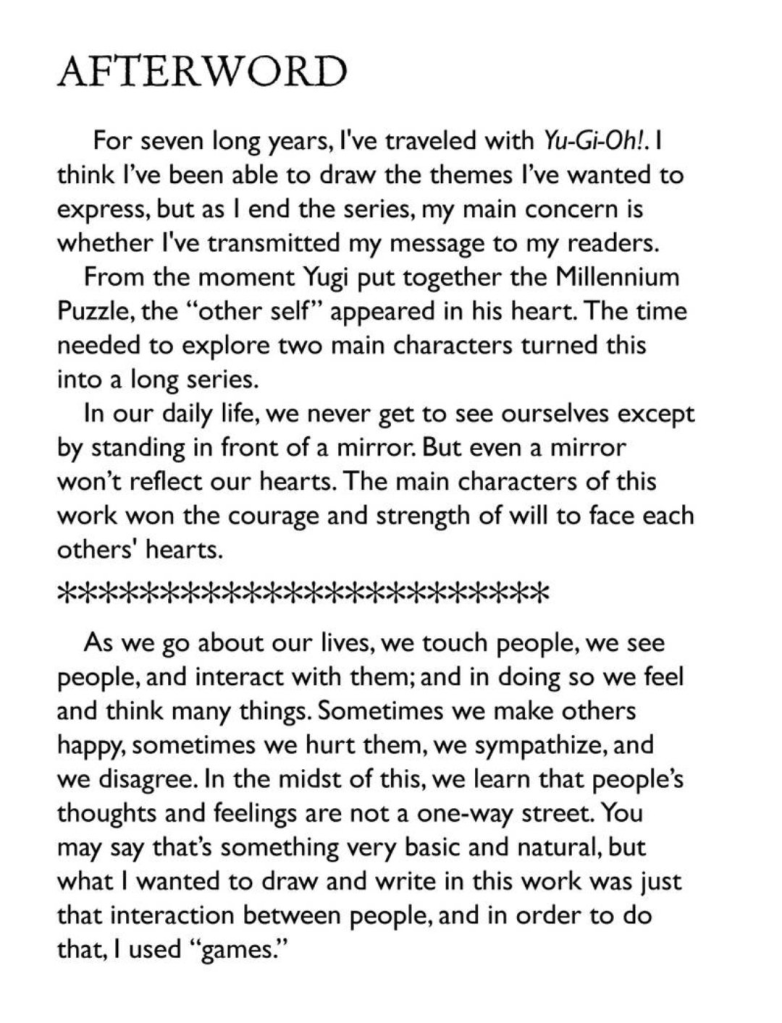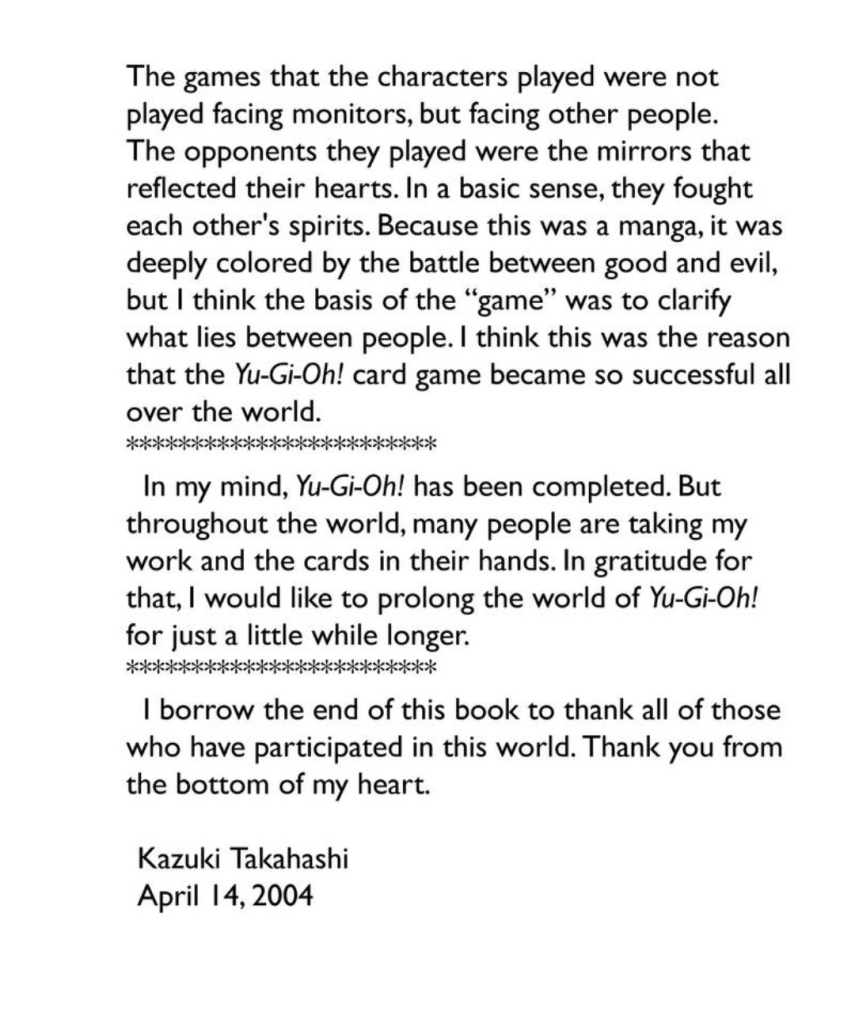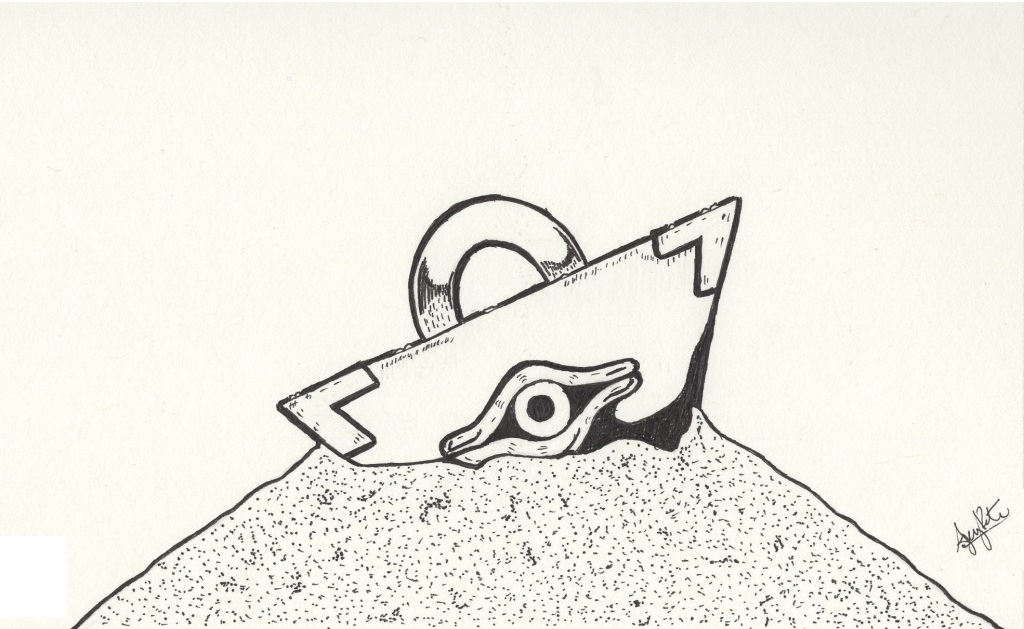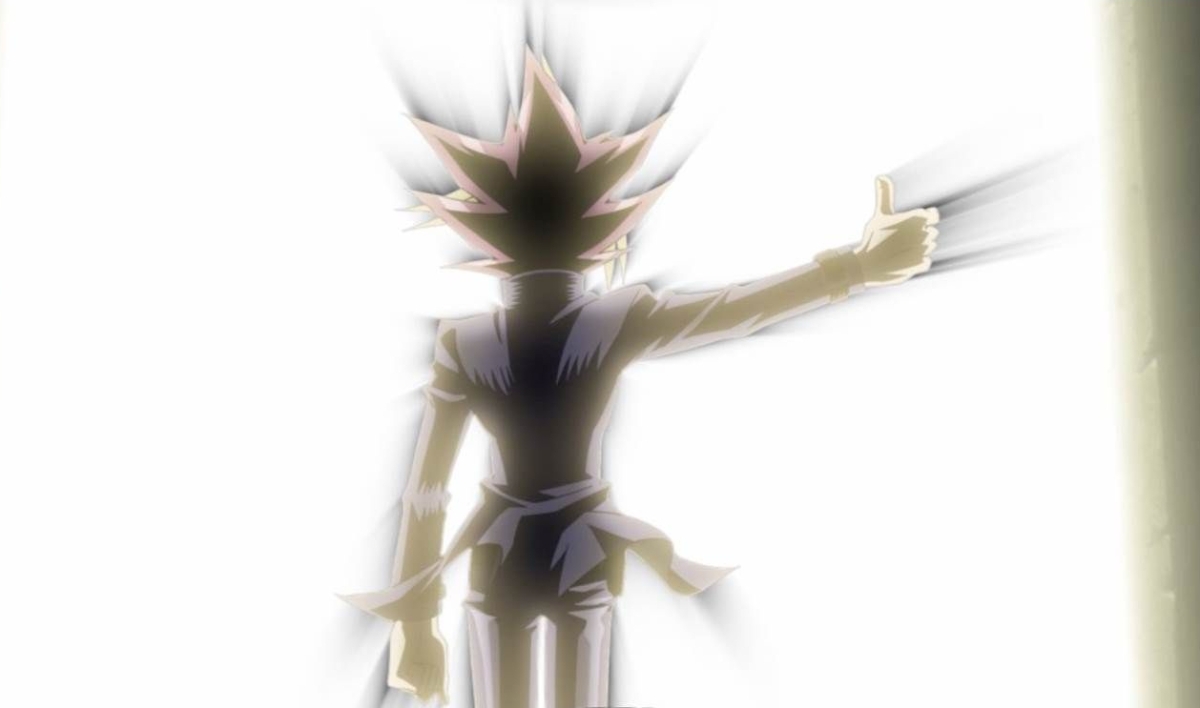Hi everyone, it is nice to be back.
While I had originally been planning to write a completely different post, news about the untimely passing of Kazuki Takahashi-sensei, the creator of Yu-Gi-Oh, changed my plans.
Having watched the anime series as well as being a hardcore fan of the manga and the card game, news about Takahashi-sensei’s passing came as quite a shock.
I discovered Yu-Gi-Oh when I was around 11 years old. My family was living in Egypt at that time, which made it all the better, as the core plot of Yu-Gi-Oh revolved against the backdrop of Egypt and its ancient history.
The card games themselves were very popular at school. This was great for a kid like me especially since it was a means through which I could find some form of inclusion (against the racism and bullying) among my peers at school. On most occasions, I would be a silent observer watching my peers play and have a riot of a time during lunch breaks.
As I didn’t have the resources to buy the actual cards, I would instead watch the aired episodes, note down the cards used by my favorite characters, find images of them online (thank god for Google), print the images at the library, and then cut them out to have my own deck of printer paper quality cards.
It would take a while before I could join in on some games with my peers. There was some mockery of my cheap deck but that would change once I began winning the games. Slowly, but surely, my victories would become a means to communicate who I was as a person to my opponents. As a result, I would gain friends and a measure of acceptance, through the game, among my peers.
Twelve years would pass until I bought my first actual Yu-Gi-Oh deck in 2017. The actual decks were cool but I still felt nothing could beat the old paper deck I made back in Egypt. Thankfully, I have kept it to this day. The cards themselves are pretty worn out but the memories they hold for me are eternal.
I have re-watched the Yu-Gi-Oh! anime series several times. While some may find its plot to be childish or incoherent on occasion, its message and themes make up for all of its flaws. There is a constant callback to the power of memories, especially of loved ones who may have passed away. There is also the strength that one can find in friendship, and through it, the courage to make your own path in life.
The card games, in many ways, mirrored the emotions and reflections of the characters and their personalities.
Altogether, the series provided quite a few powerful lessons for a kid like me who, back then, was struggling with bullying and racism in what was a constant battle to find a place for myself among my peers and as an individual.
After hearing the news of Takahashi-sensei’s death, I came across a tweet that posted the afterword he had written following the final chapter of his manga,


Suffice to say Takahashi-sensei, you succeeded. Atem said it best,
The gift of kindness you’ve given me, and the courage I’ve given you will remain with us, and that will forever bind us together.
Thank you for the gift you have given me and many others around the world through your work, and the characters you brought to life.







